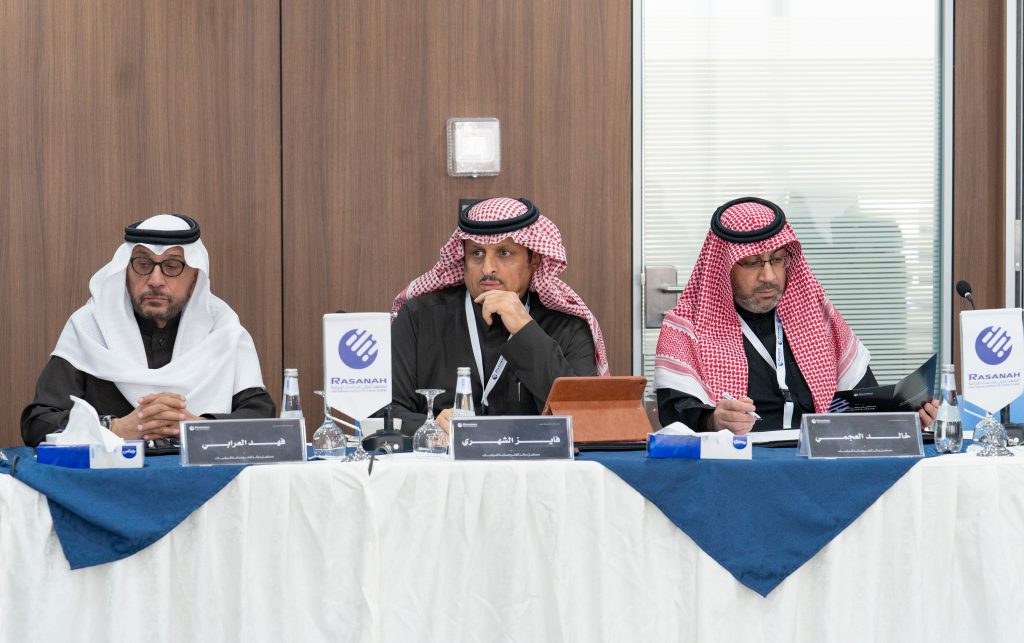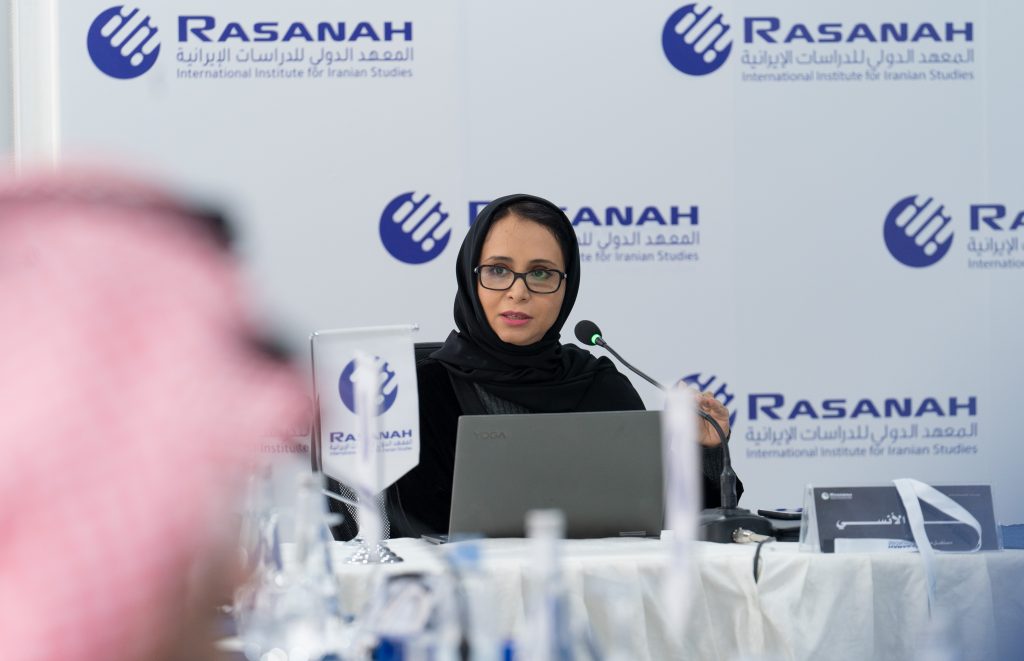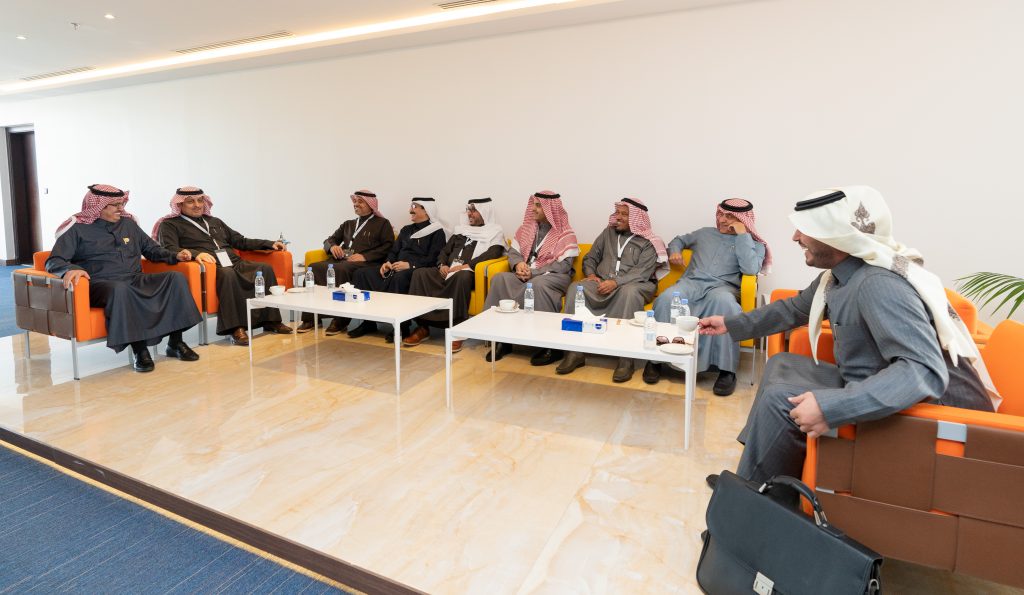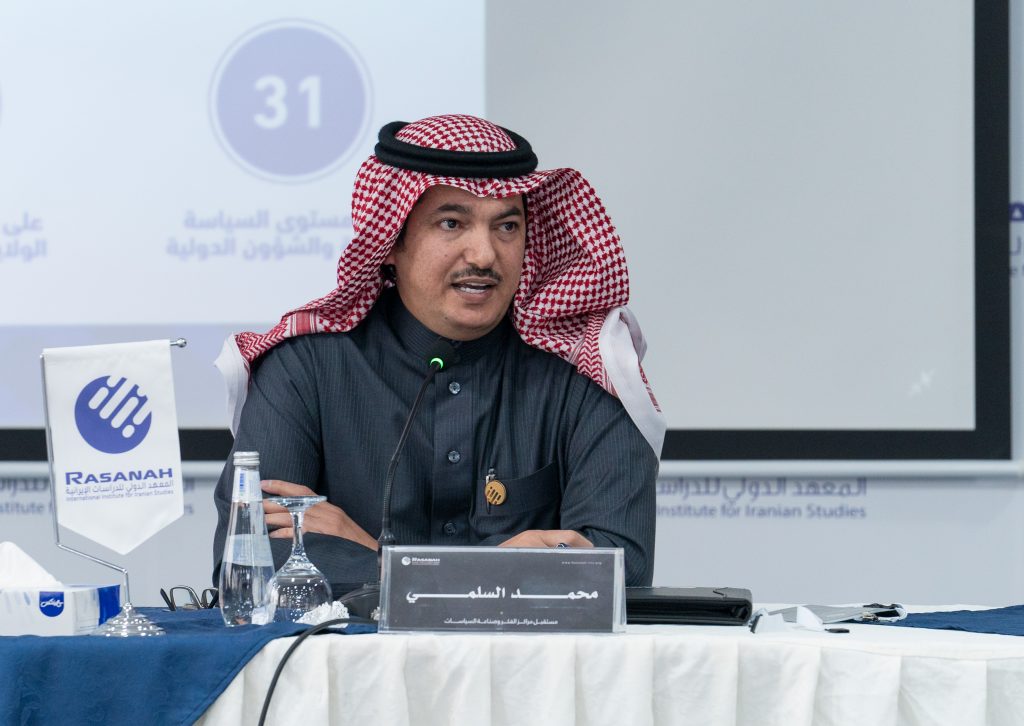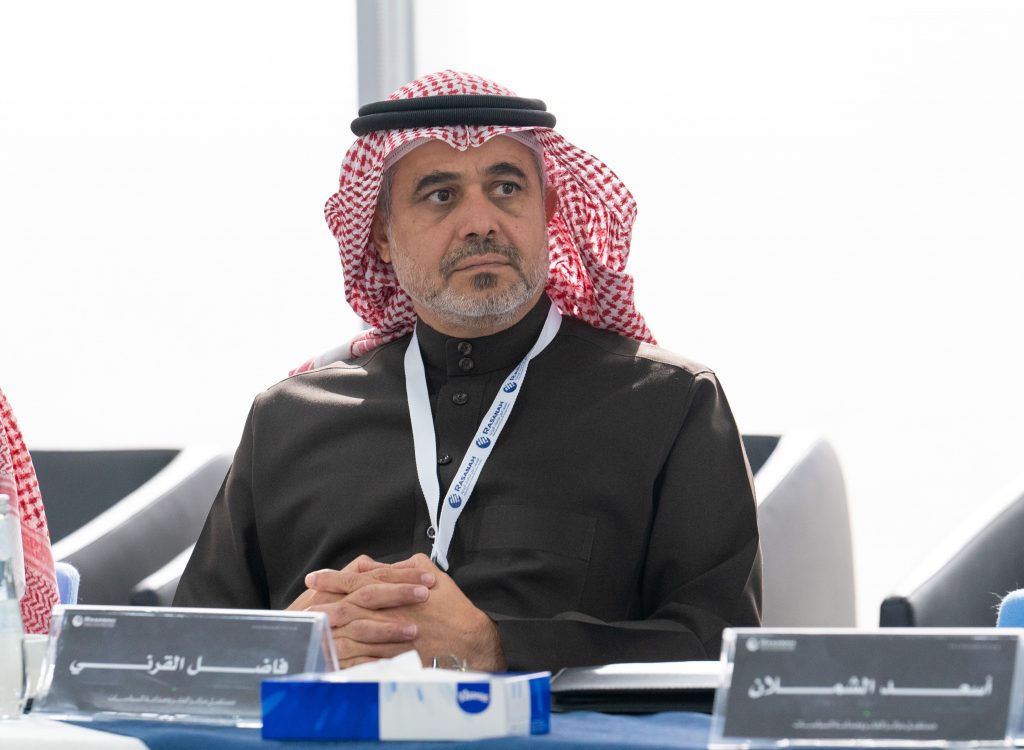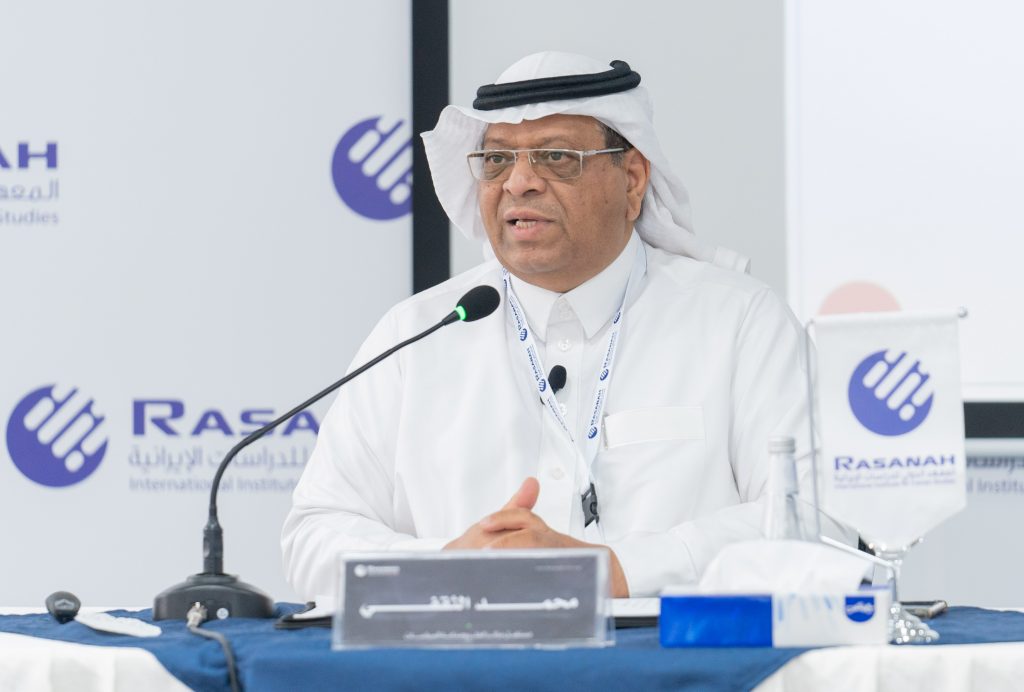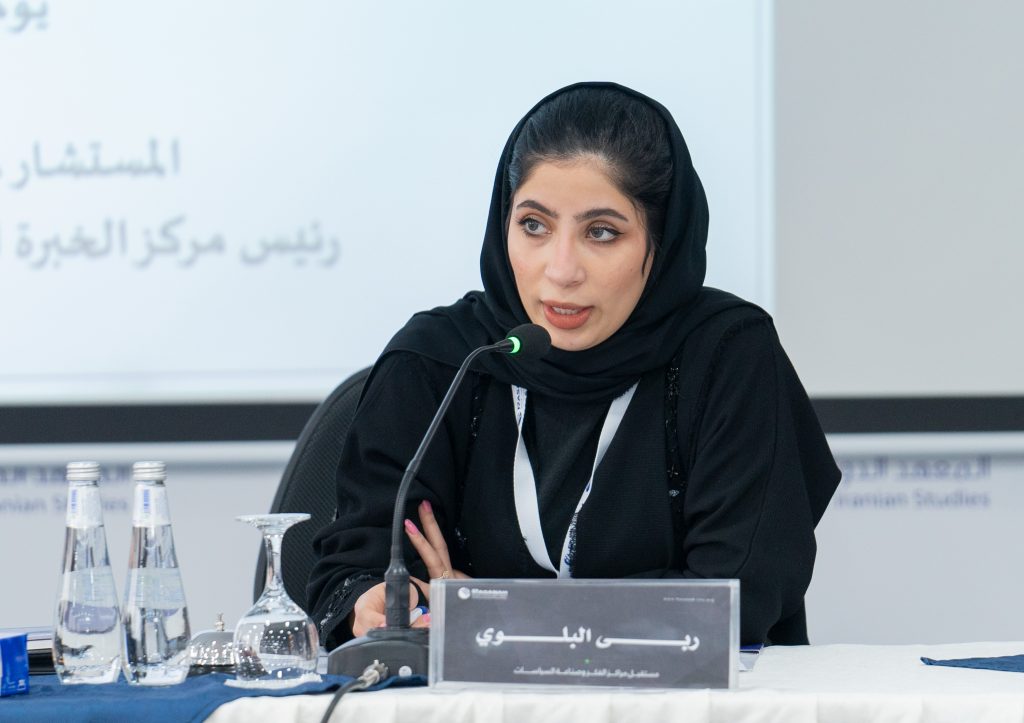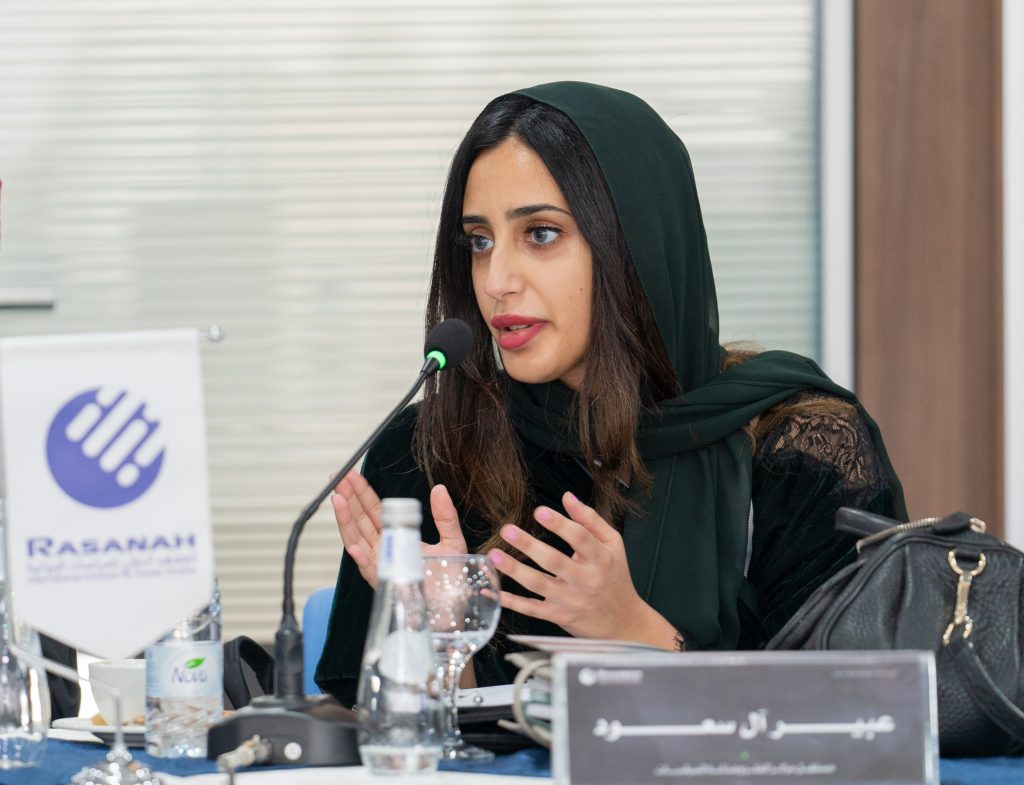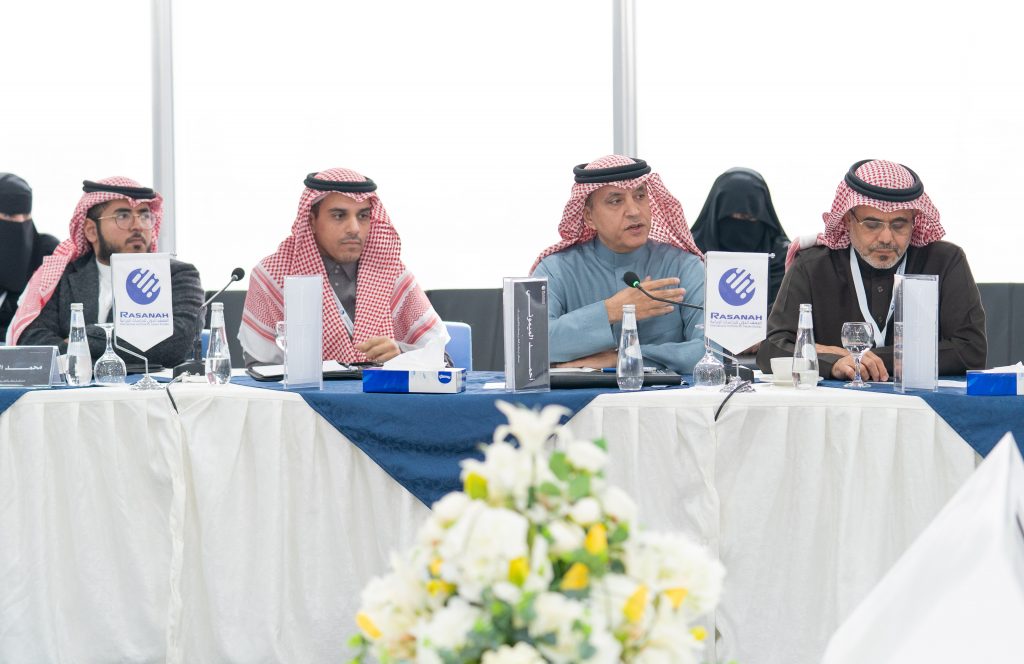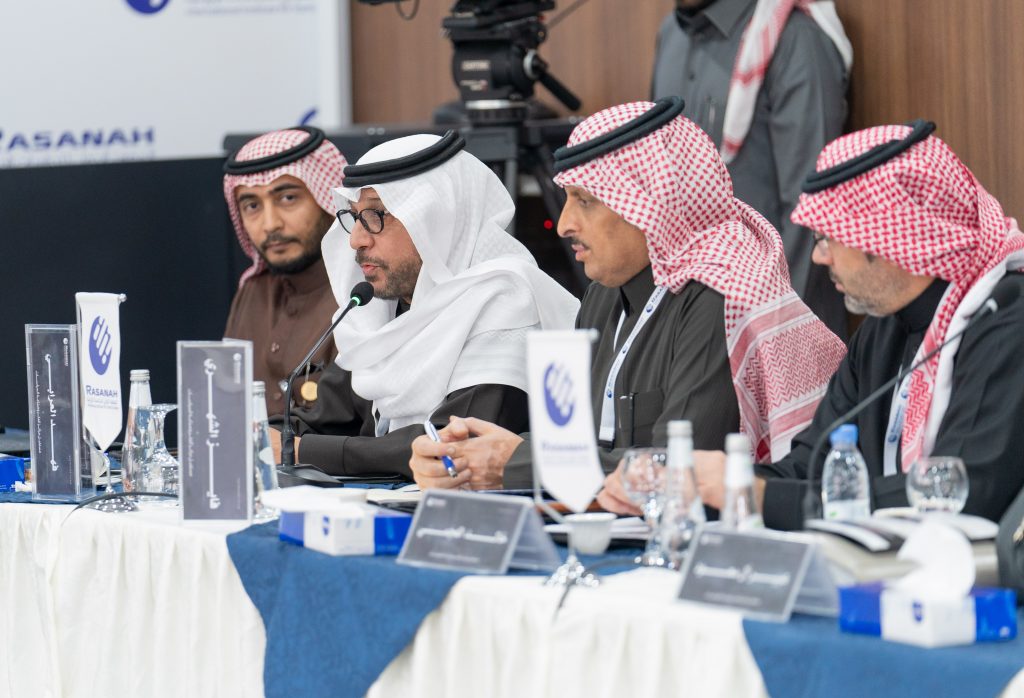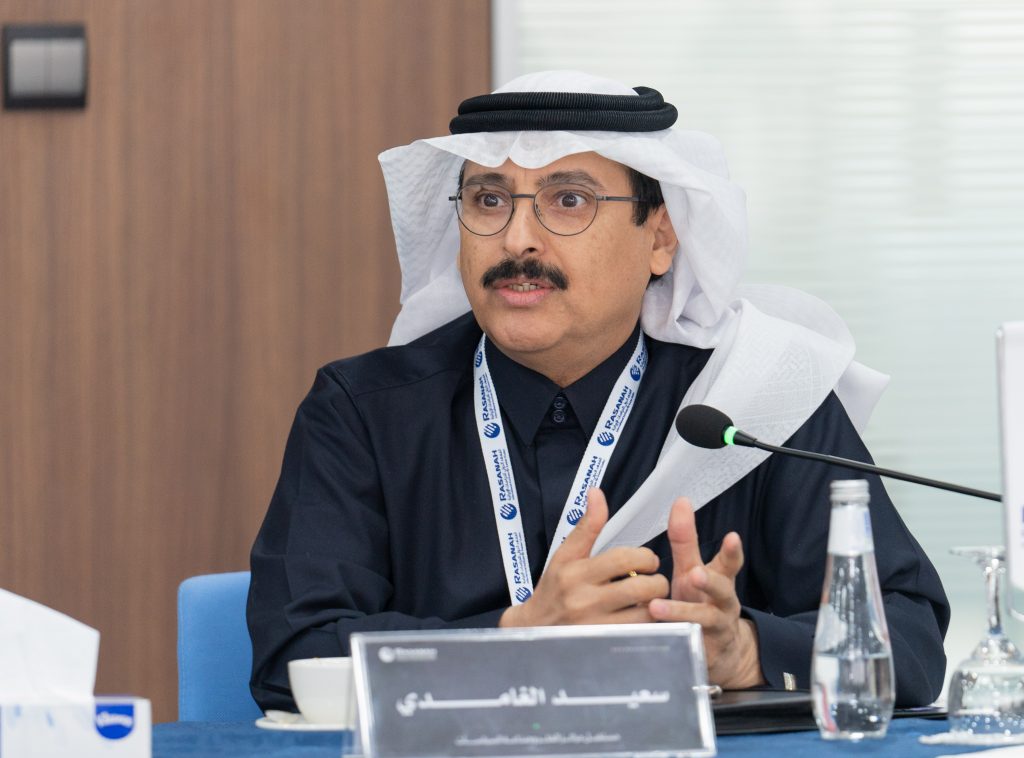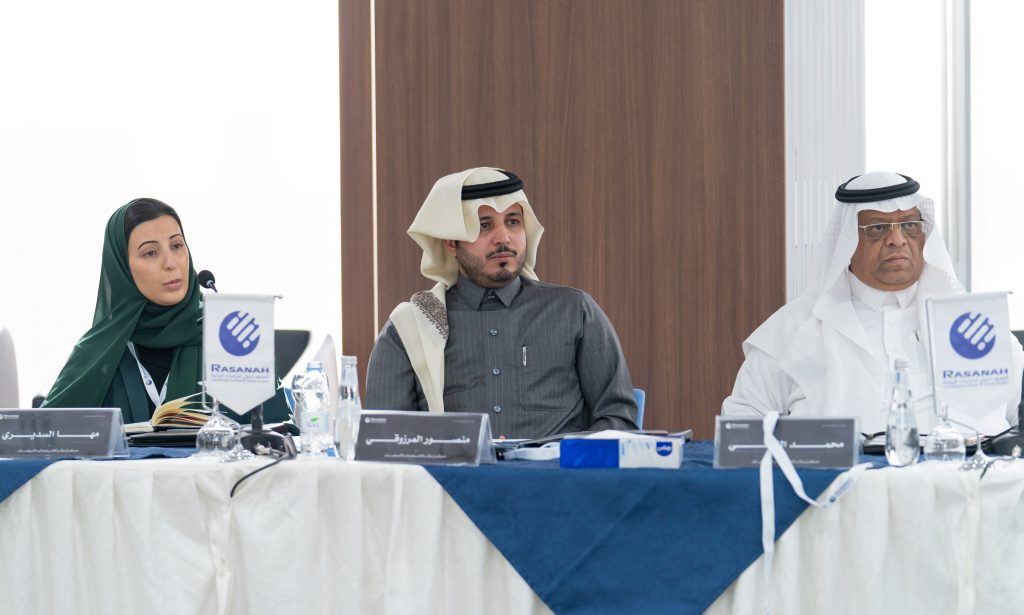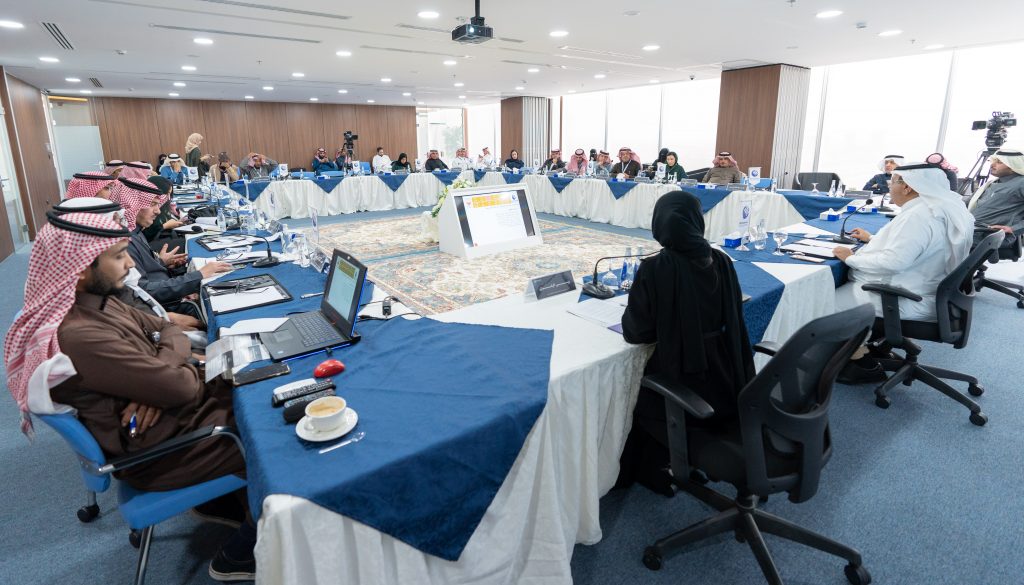The International Institute for Iranian Studies (Rasanah) held at its headquarters in Riyadh today (Thursday, January 30, 2020) a workshop on “The Future of Think Tanks in Shaping Policymaking,” in coordination with the Think Tanks and Civil Societies Program (TTCSP), University of Pennsylvania. The workshop was attended by representatives from Saudi think tanks universities.
At the opening remarks, the Founder and President of Rasanah, Dr. Muhammad Alsulami was happy to announce that Rasanah won first place among all think tanks in Saudi Arabia in 2019 and ranked eighth in the Middle East and North Africa (MENA). It also ranked 26th of the best regional studies think tanks, 31st of the best think tanks on foreign policy and international affairs, 52nd of the best think tanks worldwide (US and non-US), 53rd for the best think tank worldwide ( non-US), according to the Global Go To Think Tank Index Report (University of Pennsylvania). Alsulami confirmed that Rasanah is planning to compete in new classification records such as national security programs and new media.
The first paper of the workshop entitled, “Why Are Think Tanks Necessary for Policymaking and Guiding Political Decision-Making?” was presented by Dr. Afaf Alonsi, a sociologist. The first topic she discussed was “The Evolution of Think Tanks in the World” and the second topic was “Think Tanks and Their Added Values in Policymaking and Guiding Decision-Making.”
Alonsi talked about the origins and development of think tanks around the world historically through four waves, and the local development of think tanks between the 1970-1990s and in light of Saudi Vision 2030. Among the recommendations, Alonsi suggested forging a council of Saudi think tanks affiliated to an accredited government body such as the Ministry of Culture.
Dr. Mohammed Althaqafi, the head of Global Experience for Studies, Consulting and Training Center, presented a paper entitled, “Evaluating Think Tanks and Their Challenges, in which he discussed two main topics: “Saudi Think Tanks in Light of Financial, Human Resource, Organizational and Technological Challenges,” and “Towards Activating and Sustaining Saudi Think Tanks in Policy Making.” Althaqafi listed and detailed the most important challenges, mechanisms for activation and sustainability of think tanks. He also discussed the weaknesses, strengths and opportunities of the most well-known think tanks in the region and the world. He also identified the areas of local think tanks: politics, security, economy, military, information, ideology, culture, education, health, food, social, legal, media, and sustainable development. The second paper presented three procedural recommendations: to study the funding and activation of think tanks; to restore and support trust between the centers and decision-makers, and to invest in think tanks to benefit from the opportunity of Saudi Vision 2030 the Saudi Royal Decree which compels government agencies to attract the experts .
In addition, the third paper entitled, “The Future of Think Tanks in Light of Competition and Strategic Complexities,” was presented by Dr. Mansour Almarzouqi, Assistant Professor at Prince Saud Al-Faisal Institute for Diplomatic Studies. His paper was divided into two topics: “Complexities of International Strategic Environment,” and “Why are Think Tanks the Best Option to Comprehend the International Environment and Its Growing Crises and Complexities?” Al Marzouqi explored three concepts of the international strategic environment: military science, international relations, and international economics. He also talked about recent problems and fluctuations in the international arena, which made the work of decision-makers more complicated and difficult, such as the tyranny of terrorism and the fight against terrorism after the September 11 attacks. Moreover, he said the ramifications of globalization affected the policymaking process as they increased chaos in the world order, turning it into non-polar world. He also discussed the importance of think tanks in trying to help decision-makers to decode the fluctuations by mentioning two elements that can help achieve this end: universities and think tank centers. He believes that the think tanks are more helpful than universities to decision-makers, due to their ability to adapt, and their flexibility with regard to the expectations of the decision-making elite. The presenter of the third paper also identified a set of risks surrounding think tanks, most notably the lack of scientific and methodological competence, the dominance of the state with regard to the gathering of urgently needed information from decision-makers, and the loss of the initiative and motivation.

